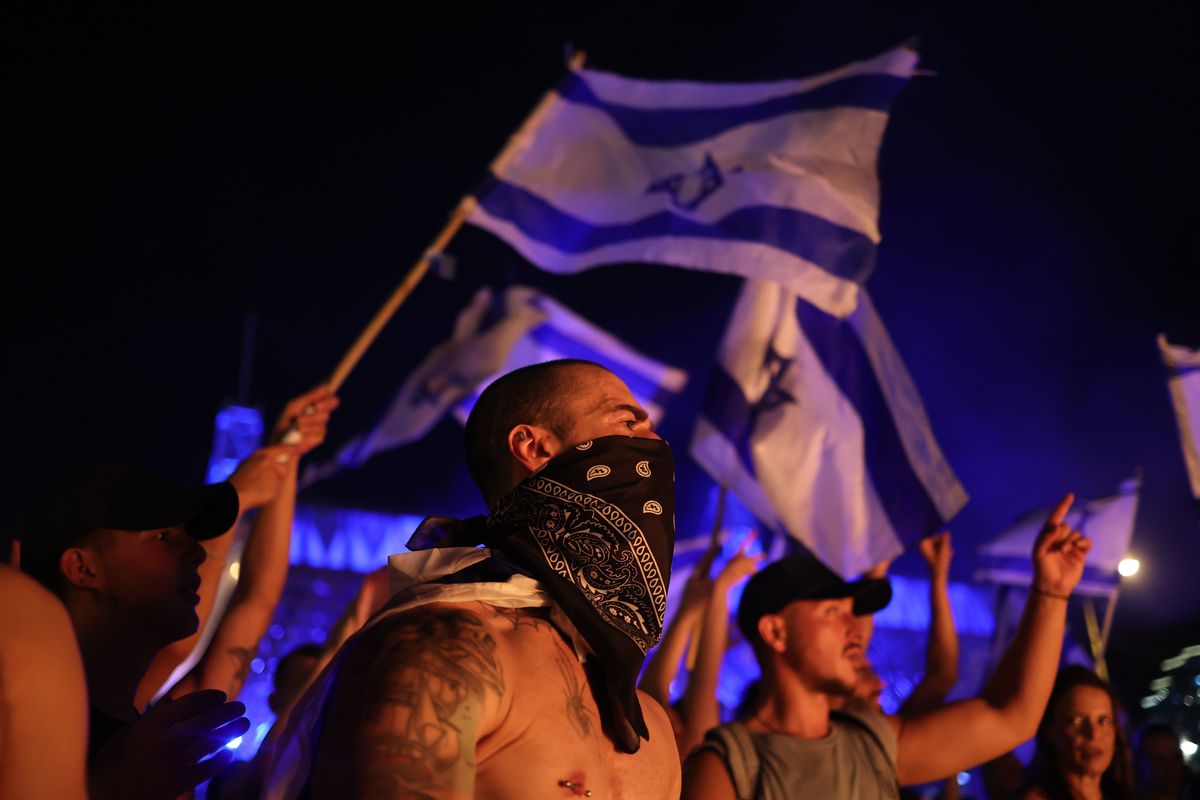Israeli Prime Minister Benjamin “Bibi” Netanyahu addressed a nation in uproar on Monday after lawmakers passed a bill limiting the power of the Supreme Court. The decision, which Netanyahu said was the will of the voters, is being met with mass protests, legal challenges, and potential military and labor strikes from Israelis who fear it will erode democratic norms.
The law restricts the supreme court’s oversight of government decisions based on their reasonableness and of cabinet and ministerial selections. It passed the 120-seat parliament in a 64-0 vote, with every member of Netanyahu’s coalition voting in favor and every opposition lawmaker walking out in protest.
Demonstrators responded by blocking the road outside the Knesset. Police pushed back, spraying them with water cannons. Meanwhile, more than 10,000 military reservists are threatening to refuse to report for duty, which could jeopardize national security. Simultaneously, 150 businesses shuttered their doors, and Israel's largest labor union is threatening to strike.
On Tuesday, doctors began a 24-hour strike and black ads placed by tech sector workers covered some newspaper front pages.
What’s next? Expect protests to continue over the coming days, perhaps leading to clashes with police.
Monday’s vote was over the first of three proposals to curb the power of the judiciary. Up next, Bibi’s far-right government hopes to give the Knesset the power to override Supreme Court decisions with a simple majority and give the government power over the appointment of judges. In his speech, Netanyahu suggested he would table the next two proposals until late November in an attempt to quell the protests.

















